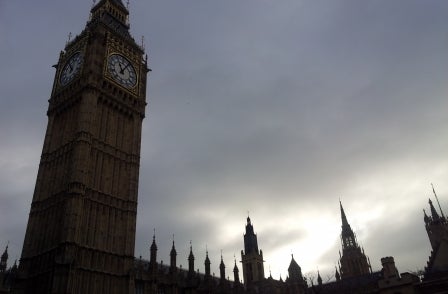
The latest draft of the Royal Charter to regulate the press stipulates that serving editors should be in a minority on the Editors’ Code of Practice committee.
It says that in future ordinary journalists, members of the public and editors should have equal weight on the body which draws up the press regulation code.
A statement issue jointly by several major national newspaper publishers this evening makes clear that they were frozen out of the final round of cross-party talks.
The latest version of the Royal Charter represents a cross-party deal and it is expected to underpinned today by a legislative amendment which will mean that it cannot be changed without the agreement of two-thirds of both houses of Parliament. A further legislative amendment is expected today which will impose the threat of exemplary damages in civil cases on publishers who are not part of the new press regulator.
In most respects it is identical to the second draft which was published by the Conservatives on Friday. It still includes major concessions to campaigners which mean publishers no longer have a representative on the appointments body for the Recognition Panel which will licence the new press regulator. And it also still states that the new regulator will have the power to direct the prominence of corrections.
In a further compromise with Labour and the Lib Dems, the new charter says that the Editors’ Code must be “approved by the board [of the new regulator] or remitted to the code committee with reasons”.
The previous Royal Charter did not interfere overly with the Editors’ Code Committee (currently chaired by Daily Mail editor Paul Dacre).
It said simply that the code committee must comprise “independent members and serving editors” (the industry had already conceded that a minority of lay members should sit on the committee).
The new charter states that the code “must be approved by the board or remitted to the Code Committee with reasons.”
It also states that the Code Committee should be appointed by the board of the regulator “in accordance with best practices for public appointments” and that it should comprise an equal number of “independent members, serving journalists (being national or regional journalists, or, where relevant to the membership of the self-regulatory body, local or online journalists) and serving editors”.
The latest version of the charter also makes the point that membership of the new regulator should be “available on different terms for different types of publisher”. This is already the case with the PCC, but it has been seen as a way of encouraging online publishers to become members.
It remains unclear whether the major publishers will sign up to the latest form of self-regulation – which cedes far more control of the process away from them.
A statement issued by regional press trade body the Newspaper Society tonight was also signed by Daily Mail Group, News International, Telegraph Media Group and the Professional Publishers Association.
It said: "We would like to make it clear that, contrary to reports broadcast by the BBC this morning, no representative of the newspaper and magazine industry had any involvement in, or indeed any knowledge of, the cross-party talks on press regulation that took place on Sunday night.
"We have only late this afternoon seen the Royal Charter that the political parties have agreed between themselves and, more pertinently, the Recognition Criteria, early drafts of which contained several deeply contentious issues which have not yet been resolved with the industry.
"In the light of this we are not able to give any response on behalf of the industry to this afternoon’s proposals until we have had time to study them."
The Newspaper Publishers Association (the trade body for national publishers) is absent from today's joint statement. Last week the Independent, FT and Guardian published leaders supporting statutory backing for the Royal Charter.
Email pged@pressgazette.co.uk to point out mistakes, provide story tips or send in a letter for publication on our "Letters Page" blog
